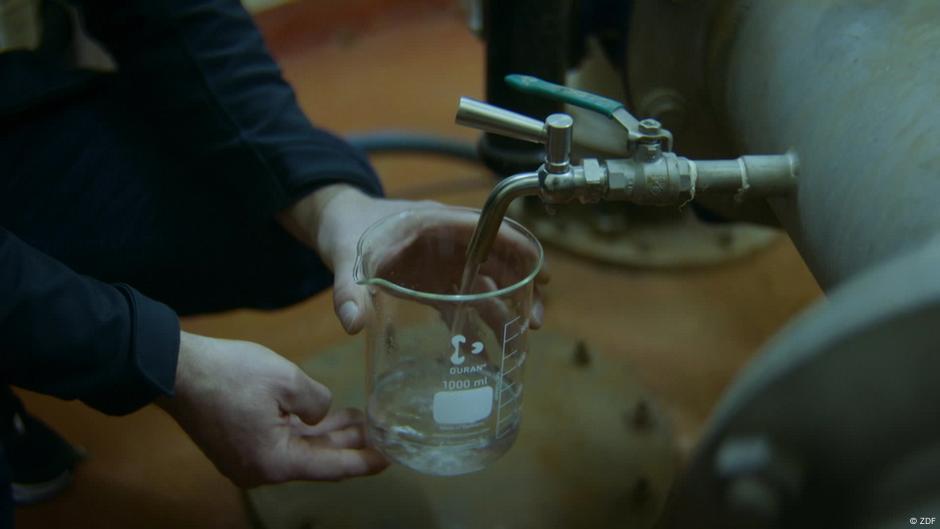Only gradually does the extent of the problem become clear.
Image: ANP/Hollandse Hoogte/Jeffrey Groeneweg/IMAGO
The chemical finds its way into drinking water supplies. Olaf Kaspryk, head of the Rastatt public works department, goes in search of clues.
Olaf KasprykImage: ZDF
It takes time to gather samples and conduct blood tests. Farmers have to destroy entire harvests. Many residents no longer drink tap water, but the chemicals are already detectable in their bodies. Mothers are warned not to breastfeed their children.
Image: ZDF
PFAS, perfluorinated and polyfluorinated alkyl compounds, are found in many everyday products such as Teflon pans and water-repellent clothing.
Image: Cem Adam Springer
They accumulate in the environment and in tissue and can cause considerable damage. PFAS pose risks to human health including an increased risk of certain cancers, fertility issues and a reduced response to vaccinations.
Image: ZDF
The harmful substance was found in compost that was spread on fields. To date, the investigation and remediation bill for the PFAS case in Rastatt has reached 40 million Euros. PFAS are highly persistent in the environment and don’t readily break down, which is why they’re also known as “forever chemicals”. The EU is currently considering a PFAS ban.
Image: ZDF
The Rastatt case constitutes one of the biggest environmental crimes in Germany. The consequences of which will be felt for a long time to come.
Broadcasting Hours:
DW English
SUN 24.08.2025 – 00:02 UTC
SUN 24.08.2025 – 03:30 UTC
SUN 24.08.2025 – 14:30 UTC
MON 25.08.2025 – 01:16 UTC
MON 25.08.2025 – 05:02 UTC
MON 25.08.2025 – 22:30 UTC
TUE 26.08.2025 – 07:30 UTC
WED 27.08.2025 – 18:30 UTC
Lagos UTC +1 | Cape Town UTC +2 | Nairobi UTC +3
Delhi UTC +5,5 | Bangkok UTC +7 | Hong Kong UTC +8
London UTC +1 | Berlin UTC +2 | Moscow UTC +3
San Francisco UTC -7 | Edmonton UTC -6 | New York UTC -4
